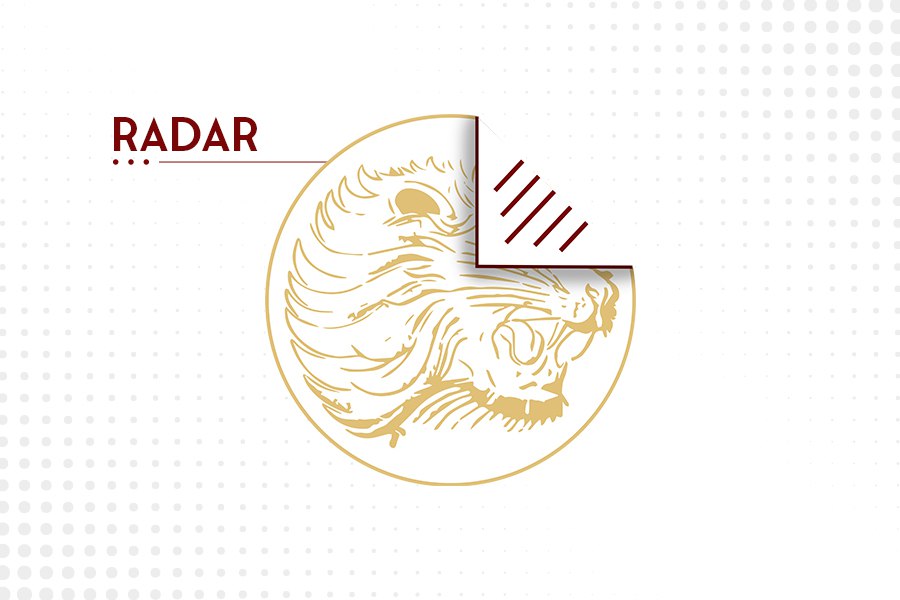
Fortune News | Jun 10,2023
Oct 9 , 2021
By BERSABEH GEBRE ( FORTUNE STAFF WRITER )
Officials of the Ministry of Trade & Industry (now the Ministry of Trade & Regional Integration) have banned sesame and pulses contract farming in six regional states, alleging widespread illicit activities. The Ministry has announced last month it no longer recognises contract farming from the Amhara, Oromia, Gambella, Sidama, Benishangul-Gumuz and Southern regional states.
The latest decision will make the Ethiopian Commodity Exchange (ECX) the sole platform where actors in the agricultural sector can trade for pulses or sesame. Last year, its trading floors saw over 614,000tn of agricultural commodities traded for 39.6 billion Br. Contract farming affects close to 2.3 million farmers producing eight million quintals of oilseeds annually. Oilseeds represented 11.2pc of Ethiopia's exports in 2019, generating 347 million dollars.
The Ministry's decision came a month after its officials called on all producers, suppliers and exporters entering into contract farming agreements for cash crops and teff to register, giving them a two-week window. Only 100 agribusiness firms managed to file applications before the deadline. Such contracts were reviewed and authenticated by lower administrative levels in regional states before the Ministry's decision.
The authorities found some of the registered agribusiness firms have presented bogus documents, according to Abeba Tamene, communications head of the Ministry.
"They've been exporting an amount much higher than what is stated in their contracts with farmers," Abeba told Fortune.
For the past five years, Binyam Mulatu has been cultivating barley, corn, and beans on a 111ht plot of land near Bahir Dar. He believes the Ministry's decision could work if appropriately enforced but fears it could also encourage farmers to engage in other illicit trade in a bid to earn foreign currency.
"This may lead to illegal activities because the legal route is closed even to genuine traders," Binyam told Fortune.
Officials of the Ministry hope strong scrutiny on contract farming will help them reduce the number of agricultural items rejected by export-destination countries because of quality issues.
"Once we've identified the problems, we'll lift the suspension," said Abeba.
Anwar Ahmed is an expert who specialises in the commodities market, working as a consultant. He believes the Ministry's measure is the right move, arguing it will present better and more equitable opportunities to farmers, suppliers and exporters.
"The market was falling under the control of a few," said Anwar. "Restoring trade to ECX will offer fair opportunity."
For Fasil Melese, a major shareholder of Dawunt Trading Plc, contract farming is the best way to boost productivity. His company has been exporting sesame to China and the European market for 13 years.
"Contract farming helps smallholder farmers get better offers and improve productivity," Fasil told Fortune. "At the ECX, farmers takeaway is only what is offered by traders that don't add any value."
Contract farming has been used as a tool among developed economies to increase agricultural production. It is commonly used in Ethiopia to commercialise smallholder farming.
"It's critical to implement a demand-driven farming system and help farmers actively participate in the supply chain," says Demis Chanyalew (PhD), an agricultural economist.
PUBLISHED ON
Oct 09,2021 [ VOL
22 , NO
1119]

Fortune News | Jun 10,2023

Radar | Aug 11,2024

Fortune News | May 02,2020

Fortune News | Feb 26,2022

Fortune News | Oct 07,2023

Radar | Apr 15,2023

Fortune News | Sep 10,2021

Fortune News | Jun 17,2023

Exclusive Interviews | Feb 08,2020

Radar | Mar 21,2020

Dec 22 , 2024 . By TIZITA SHEWAFERAW
Charged with transforming colossal state-owned enterprises into modern and competitiv...

Aug 18 , 2024 . By AKSAH ITALO
Although predictable Yonas Zerihun's job in the ride-hailing service is not immune to...

Jul 28 , 2024 . By TIZITA SHEWAFERAW
Unhabitual, perhaps too many, Samuel Gebreyohannes, 38, used to occasionally enjoy a couple of beers at breakfast. However, he recently swit...

Jul 13 , 2024 . By AKSAH ITALO
Investors who rely on tractors, trucks, and field vehicles for commuting, transporting commodities, and f...

Jul 5 , 2025
Six years ago, Ethiopia was the darling of international liberal commentators. A year...

Jun 28 , 2025
Meseret Damtie, the assertive auditor general, has never been shy about naming names...

Jun 21 , 2025
A well-worn adage says, “Budget is not destiny, but it is direction.” Examining t...

Jun 14 , 2025
Yet again, the Horn of Africa is bracing for trouble. A region already frayed by wars...